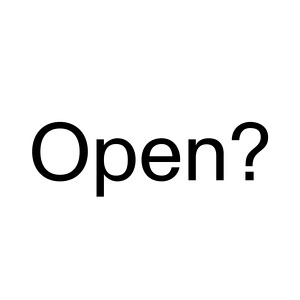How Will We Meet Again?
Below is the beginning of Gabriella Gomez-Mont’s contribution to Voices (Towards Other Institutions). To read to the entire text, which she co-wrote together with Antonio Vega Macotela, visit pavilionrus.com.
“There is no need to stress that the months we have spent in global lockdown have been tumultuous and unexpected. A few lines of genetic code that make up COVID-19 have changed the world. In the absence of effective contemporary treatments, we turn to the oldest of the pandemic remedies: a quarantine.
And in this global quarantine our ways to approach work and relationships to others have changed. Our configurations of intimacy and belonging are shifting still, and with cities locking and unlocking and locking down once more, a fundamental question becomes urgent: how will we meet again?
There is always a radial echo between the individual and social body. Coronavirus has made visible structural deficiencies the world over; starting from the same virus but then rendering visible the particular cultural idiosyncrasies, generosities and atrocities. Eloquently (sometimes silently) speaking about the symbolic infrastructures of society, ranging from oppression in Chile, Brazil, or China to racism and authoritarian tendencies in the United States; to structural deficiencies in Mexico, India, South Africa; to tension and lack of coordination between the European Union’s members; to the way many Asian cities think about collective responsibility. To say nothing of governments that have taken advantage of this moment to commit grave offenses to society, clearly endangering human rights.
COVID-19 highlighted and accentuated the social differences, made visible the issues that are difficult to confront such as racialized poverty, the excessive use of violence and how obsolete the state´s ideological system is in contrast to more progressive ideas and convictions. The end of the pandemic implies the restructuring of the encounter with the other. The other, the beloved, the other, the feared. The ally, the monster…
The horizon opens up to explore new forms of political life in the murmurs of lovers at a distance, in a mother with a secret life and in us: our most private moments. Mystery fields emerge for anyone who wants to harvest them. Around the walls that surround us and in front of the flat screens, we rethink the value of the living. We have the political common where the state cannot guarantee our security. The systems of repression, persecution and the silencing of voices have become a course of Machiavellian politics, which obeys a logic that bases its practices on the sacrifice of the living. Real security is experienced in the affectivity with the people around us and in the hypothetical embrace of those who are no longer there. We understand the everyday and its political capacity as a hidden social struggle, which transmigrates from isolation to isolation in the invisible network of power relations and energies that surround us. The monastic denial of life in the pandemic and the subversive practices to preserve existence in order to germinate new forms to imagine the world.
So in these moments of forced redefinitions what should—and could—be a cultural and creative response? How do we surrender to the fact that the world as we knew is gone, but instead of making this an act of despair turn it into one of radical imagination?”
(… continues on pavilionrus.com)
Gabriella Gomez-Mont is the founder of Laboratorio para la Ciudad (2013–18), the award-winning experimental arm of the Mexico City government. Her main project at the moment is Experimentalista, a new type of nomadic and creative office specialized in cities, that constantly shifts shape to accommodate high-level, transdisciplinary collaborations across the world, with arts and humanities at its center. Besides her fascination with all things city, Gabriella is a journalist, visual artist, and director of documentary films, as well as a creative advisor to several cities, universities and companies.
Antonio Vega Macotela is an artist who lives and works in Mexico City and in Amsterdam. His work is of a multidisciplinary nature and designed to be carried out with communities and in specific places. Through his work the artist explores the notions of work, value and exchange, specifically with regard to the system through which social relations are established and negotiated. He has exhibited in most of the Mexican museums, at the 14th Istanbul Biennial, at dOCUMENTA 14 and The Hammer Museum in Los Angeles.


